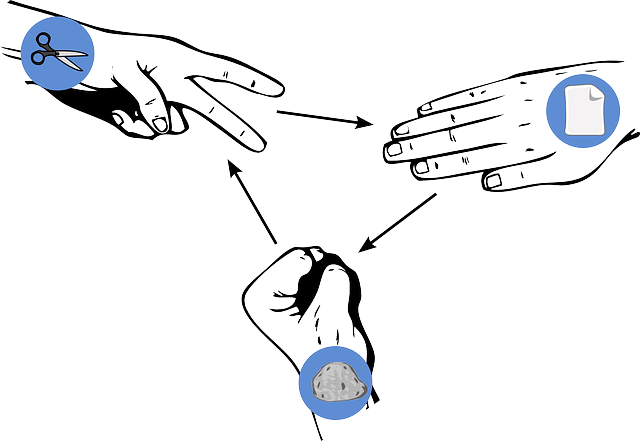 By Reese Ramos, University Ombuds at Virginia Tech, IOA Board Member
By Reese Ramos, University Ombuds at Virginia Tech, IOA Board Member
As the IOA Annual Conference in Portland, Oregon approaches, I was reminded about how Portland got its name (and no, it wasn’t named Portland because it is a port). Apparently, Asa Lovejoy and Francis Pettygrow, who both owned the claim to the land that would become Portland, wanted to name the new town after their respective hometowns of Boston, Massachusetts and Portland, Maine. They couldn’t agree who should name this new town, but they did agree to flip a coin. After two of three coin-toss wins took place, Portland became the town’s new name after Francis Pettygrow’s hometown. When I first heard this story, I got a kick out of it thinking about what might have happened if these two had had a facilitator. Port Boston perhaps?
And how did coin-flipping become a method for resolving conflict?
Coin flipping began eons ago and the story goes that Julius Caesar, dictator of the Roman Republic, would intervene in serious litigations and render a decision. If he was not available to arbitrate, then a flip of the coin (which contained a rendering of his head) would take place. The belief was that the gods would decide the outcome, and Caesar, in absentia, concurred with whichever party called “navia aut caput” (ship or heads). And so Portlanders, in a way, can thank Julius Caesar for creating the process that helped two landowners resolve their conflict.
Here’s another (fun) method for resolving conflict: Rock-Paper-Scissors. It’s been a while since I’ve been a kid, but I do remember this being a rather useful method of dealing with disputes (who gets to be on whose team, which game is played, etc.). The origins of rock-paper-scissors go back to the Ming dynasty in China, and throughout Japanese history there are also references to “sansukumi-ken,” which roughly translates into “games with a three-way deadlock.” The best-known modern version of these games is “jan-ken” or rock-paper-scissors.
For those of you not familiar with this game, the players agree that on a specific count (like 3, now is it ON three or AFTER 3?) they will throw their fist and make a sign. Closed fist represents rock, open hand is paper and a sideways ‘V’ represents scissors. Rock is smothered by paper, paper is cut by scissors and scissors is destroyed by rock. 3-way deadlock. If you want a more complicated (and dare I say “geeky” method?) you can take the Big Bang Theory’s Rock, Paper, Scissor, Spock, Lizard approach.
You might think this is a juvenile method of resolving conflict, but a few years back a Japanese company had the dilemma of being unable to decide which auction house, Christie’s or Sotheby’s, should sell the company’s art collection, worth then roughly $20 million. The president of that company asked each of the two auction houses to decide for themselves how to resolve the problem and, unable to reach a resolution, the president suggested they use rock-paper-scissors as method. Instead of following the traditional rules for the game, each auction house was asked to write down the Japanese word for the ‘weapon’ they chose. A company representative then looked at each selection and declared the winner: Christie’s. And with it, Christie’s got the opportunity to make millions off the auction sale.
Rock-paper-scissors has also been used in the U.S. to settle matters. In one dispute, a Judge ordered two attorneys, who were unable to agree on the minor details of a lawsuit, to resolve the dispute via a game of rock-paper-scissors.
In a more recent, and somewhat unusual, situation, an underage drinker avoided the consequences of her actions by playing a game of rock-paper-scissors. Apparently said minor was at a music festival and had been drinking. It is unclear whether she was going to be cited or arrested by several officers at the scene, or who had the idea of settling the matter via rock-paper-scissors, but it is clear who won: the underage minor.
So, what’s the takeaway lesson from these two (un)traditional methods of resolving conflict?
No, it’s not that the next time you find yourself dealing with the law you should resort to rock-paper-scissors (then again, what’s the harm in asking?); but seriously, what’s the point?
In short, these are reminders that if people are willing, and all else has failed, at least there are simple methods for resolving disputes.
What other, (un)traditional methods, would you add to the above?
